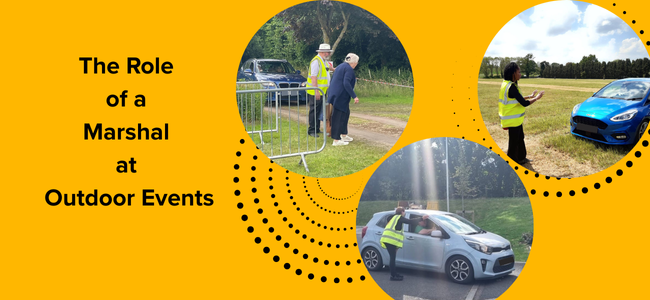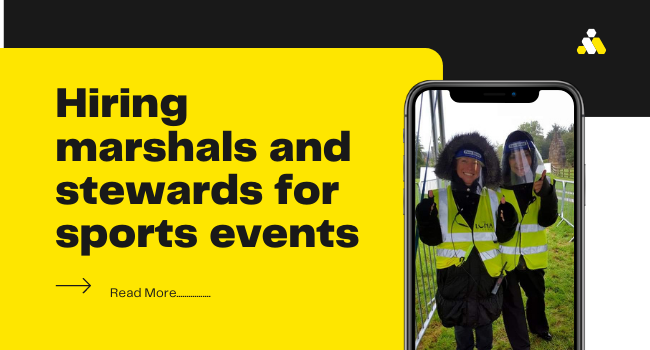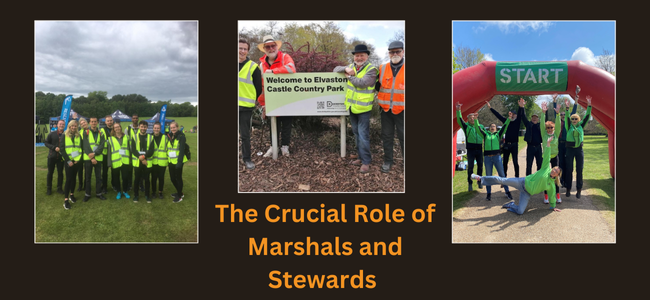
The Role of a Marshal at Outdoor Events
The Unsung Heroes of Outdoor Events: The Role of a Marshal
When attending a bustling festival, a vibrant parade, or an adrenaline-filled sports race, you might notice people in high-visibility vests, calmly managing crowds, guiding traffic, or assisting attendees. These are event marshals—often overlooked, yet absolutely vital to the smooth and safe running of outdoor events.
In this blog, we’ll explore what marshals do, why they matter, and how they contribute to both visitor experience and client success. We’ll also dive into what kind of events they support and answer some common questions about becoming one.
What Does a Marshal Do at an Outdoor Event?
Event marshals are the on-the-ground personnel responsible for safety, coordination, and communication during an event. Their duties vary depending on the size and type of event, but typically include:
• Crowd Control: Ensuring safe movement of people, preventing overcrowding, and helping maintain a calm atmosphere.
• Directional Assistance: Guiding participants and visitors to specific areas like entrances, exits, toilets, first aid, or parking.
• Traffic Management: Overseeing vehicle flow, particularly at events with road closures or parking areas.
• Emergency Response Support: Assisting with evacuation procedures, first aid coordination, or helping emergency services access the scene.
• Information Point: Acting as a friendly face for attendees, answering questions, and offering general event info.
They are the front line of event safety, often acting as the eyes and ears for event coordinators and security teams.
The Benefits of Marshals for Clients and Visitors
For Event Organisers and Clients:
• Risk Reduction: Marshals help prevent incidents, injuries, or disruptions, which is crucial for legal compliance and public safety.
• Operational Support: With marshals handling crowd flow and basic inquiries, event staff can focus on higher-level tasks.
• Positive Reputation: Smooth-running, well-organised events leave lasting impressions, boosting client reputation and future attendance.
For Visitors:
• Improved Safety: Attendees feel safer knowing trained personnel are present.
• Better Experience: Marshals offer helpful directions and reduce confusion, making the event more enjoyable and stress-free.
• Quick Response: In case of emergencies or disruptions, marshals ensure fast, coordinated action.
What Kind of Events Use Marshals?
Event marshals are essential at a wide range of outdoor events, including:
• Sporting Events: Marathons, triathlons, cycling races, and motorsports.
• Festivals: Music, food, and cultural festivals often spread over large venues.
• Public Parades: National celebrations, religious processions, or commemorative marches.
• Charity Events: Sponsored walks, fun runs, or awareness campaigns.
• Markets and Fairs: Especially those held on public roads or in open spaces.
• Community Events: Local carnivals, open days, or town fairs.
Whether it’s managing road crossings for a marathon or maintaining safe zones at a fireworks show, marshals play a key part in keeping everything running smoothly.
FAQ: What Training Is Needed to Be a Marshal?
Do marshals need formal qualifications?
Not always. Many marshaling roles are open to volunteers or temporary workers with basic safety awareness. However, certain events—especially those involving road closures or large crowds—may require more advanced training.
What kind of training is provided or required?
• Basic Safety Awareness: Covering risk assessment, hazard recognition, and personal safety.
• First Aid Training (optional but beneficial): Especially for larger events.
• Event-Specific Briefings: Each event will usually include an orientation on routes, zones, communication protocols, and emergency procedures.
• Traffic Management Certification: For marshals working near roads or managing vehicle flow.
• Communication Skills: Being calm, clear, and approachable is key—some training may focus on public interaction and conflict de-escalation.
How can I become a marshal?
Many events hire marshals through staffing agencies, volunteer networks, or local councils. Expressing interest in community events is a great way to start, and gaining experience over time can lead to paid roles at larger events. Visit www.marshalsandstewards.co.uk to register
Final Thoughts
Event marshals are much more than just people in high-vis jackets—they are safety coordinators, guides, and essential support staff all rolled into one. Their work ensures that outdoor events are enjoyable, well-run, and above all, safe for everyone involved.
Whether you’re planning an event or considering becoming a marshal yourself, understanding the role and its importance is a step toward creating better, safer public experiences.



